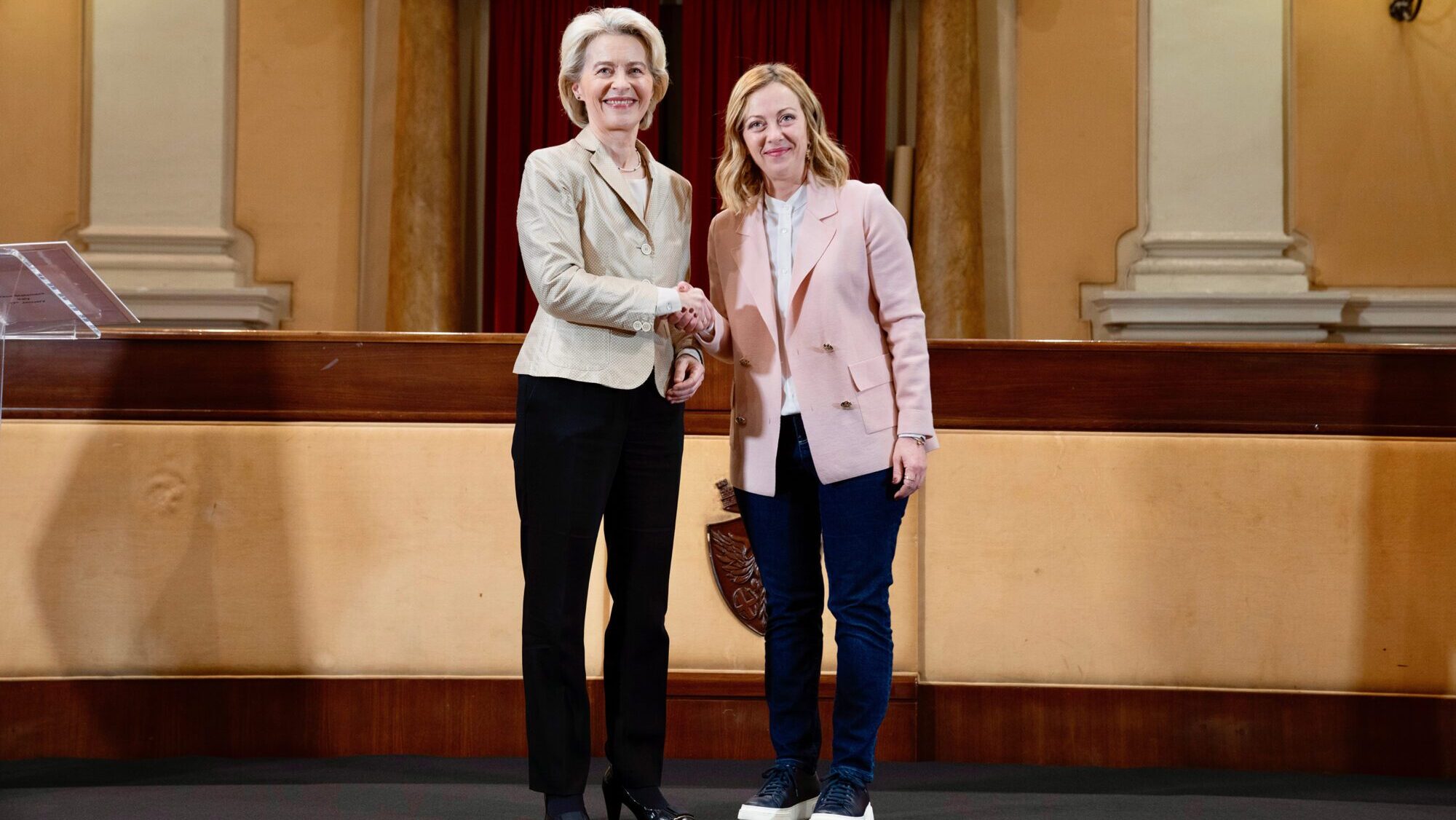
President Meloni meets with President von der Leyen in Forlì, Italy/
Photo: governo.it, CC-BY-NC-SA 3.0 IT
As pressure is building on EU Commission President Ursula von der Leyen over her personal handling of the EU’s flawed COVID vaccine rollout, the impact of the Pfizergate investigation is being acutely felt by Italy’s Giorgia Meloni. The scandal has prompted the right-wing populist Lega Party to break ranks with Meloni’s more moderate Fratelli d’Italia—with whom they are currently in a coalition government—over claims that the prime minister is going too soft on von der Leyen.
Since taking office in 2022, Meloni has charted a path of compromise and pragmatism with von der Leyen over migration-related issues. Rumours even circulated that Meloni’s Fratelli party would join the EPP group in the European Parliament after June.
Lega has jumped on the Pfizergate scandal. While struggling in opinion polls, the party is keen to emphasise its more radical credentials over Meloni, who it claims is selling out her party’s populist ethos.
“The need for transparency is renewed; we need answers from the president and the majority that supports her. No more silence,” declared Lega MEP Paolo Borchia, explaining his party’s taking umbrage at Meloni’s continued support for von der Leyen despite the Pfizergate-based allegations of corruption.
It is currently in Meloni’s interest to keep on good terms with von der Leyen and the European Commission while she positions herself to engineer a potential alliance with the centrist EPP using the conservative ECR faction. Such a move would undermine the liberal-left majority that has dictated terms in the European Parliament for decades.
Von der Leyen is under scrutiny for her reasoning when choosing Pfizer as the primary provider for the EU vaccine programme, and her private text message conversations with Pfizer CEO Albert Bourla. At the same time, Brussels is now being panned for over-centralising its response to the entire crisis.
The slow-brewing scandal further complicates an already difficult re-election campaign for von der Leyen, who faces a challenge from sections of her own centrist European People’s Party (EPP) parliamentary faction in Brussels, as well as a wave of populists scoring major victories off the EU’s failing green and migration policies.
While von der Leyen is still widely considered to be practically guaranteed to be reelected, there have been speculations that Eurocrats are preparing potential alternative candidates, including Italian former Prime Minister Mario Draghi, as the Pfizergate scandal drags on.Independently of the alleged corruption, various critics continue to question whether the vaccine development process was rushed. The Italian premier and her government are also ploughing ahead with plans to audit possible side effects of the vaccination programme, regardless of how this might impact new political alliances in Brussels.
